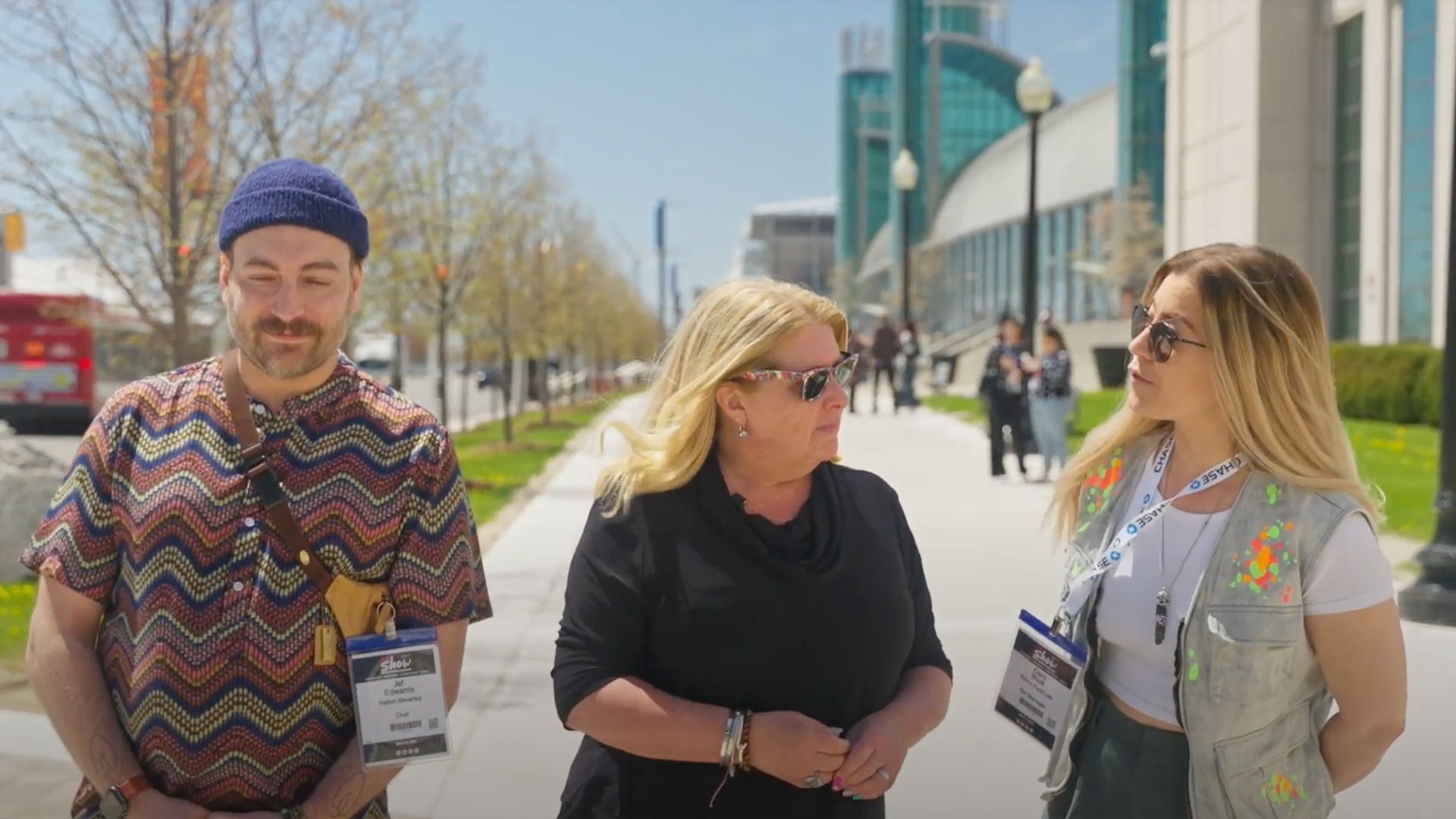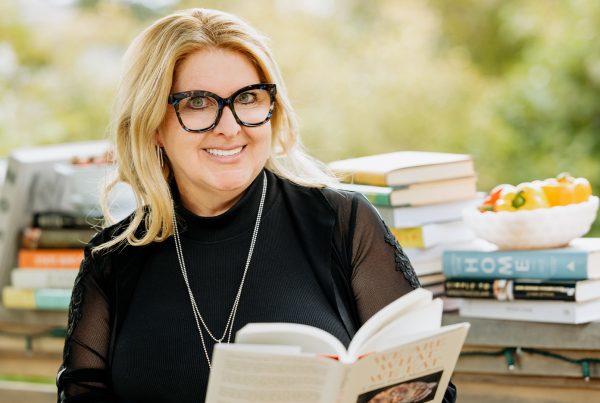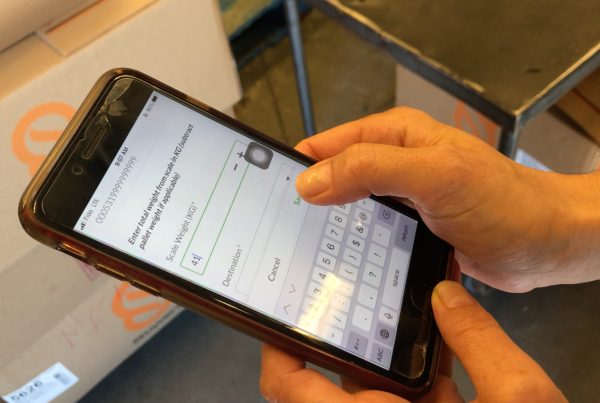Innovative chef Jeff Edwards is always looking for creative ways to use leftover food alongside bar manager Eleni Bock. At Toronto’s RC show, Trendi’s Chief Culinary Innovation Officer, Christine Couvelier, connected with the proud team members of Ration | Beverley fine dining in Toronto to discuss the ways they tackle food waste inside the restaurant.
There’s No “I” in Menu
Ration | Beverley offers a dining experience that is focused on tasting menus, and smaller portions with intricate plate designs that naturally creates more byproduct than traditional meals. Jeff says this is where they must find clever ways to integrate these byproducts as additional pieces into separate dishes. Jeff explains that the goal is to tell a story of how they redeem their waste effect.
When launching new menus, the bar staff relies heavily on the byproduct influence of the kitchen staff. Between the bar and kitchen, menus are cross-compared prior to launch to help reduce the amount of wasted byproducts from the tasting menu that can alternatively be used in their cocktails. Eleni says, “it really helps assist with the waste with the bar margins because liquor is quite expensive, especially now.”
Waste Is a Bad Word at Ration | Beverley
Through the language of food, the restaurant aims to tell stories of life in Canada pre-colonization and beyond. Ration | Beverley only uses local, ethically sourced ingredients and also supports zero waste with an array of seasonal menus. When looking for local companies to partner up with, homegrown ingredients aren’t the only thing on their list. The restaurant focuses on partnering up with companies with eco-initiatives that align with theirs, i.e. suppliers with closed-loop recycling systems. The restaurant is sustainably driven and claims “waste is not in their vocabulary”.
Some of Ration | Beverley’s other sustainability practices that impressed us include:
Growing and Gardens: growing their own microgreens and herbs for both the kitchen and bar.
No Food Wastage: utilizing every part of their ingredients, including what others consider to be ‘scraps’ and ‘waste’, and converting them into purees, miso, shoyu, garum, and more.
Whole Fruit: using the entirety of all fruit and herbs by dehydrating and preserving for uses such as aromatic zest, saccharum, cordial, syrup, garnish, and dehydrated citrus for guest’s water or to garnish cocktails.
Renewable Resources: using straw and fern stems preserved over winter as skewers. Fun fact: picking them spreads their seeds so new ones can grow!
No Water Waste: all leftover ice is used in the kitchen for cooking or used to water their gardens.
They also do not use plastic bags from grocery stores and any of the staff that takes plastic bags is sentenced to bathroom cleaning duty.
The Future of Food Waste in Restaurants
When Christine asked, “Do you think that in the last 5 to 10 years, we are a better industry for dealing with our food waste, or are we getting worse?” Jeff answered, “You know what that’s actually, that’s a fun question because I think that there’s a lot of people who are shining a lot of focus on these clever ways to use what most would deem a waste product. I think the call to action is a lot of these bigger, higher-end restaurants that need everything to be perfectly formed, and challenging them to find better ways to use this kind of stuff. And I think the next way to go is to involve everybody. If the smaller restaurants are doing it and the big guys almost wanna be like ‘oh, well, they could do it. Like, why can’t we?’”
Eleni added, “I think we’re also afraid of expiration dates on fruits and vegetables. I think there’s a Renaissance coming. We just have to be more comfortable with it.”
Christine later invited both Jeff and Eleni to sit on the roundtable of industry leaders Trendi is bringing together to talk about how to keep moving forward, become ambassadors, and continue the conversation with Trendi.
Article written by:
Erika Altomare, Copywriter
Erika is a passionate wellness, food, and lifestyle writer who appreciates the little things and always asks questions about the big ones.







